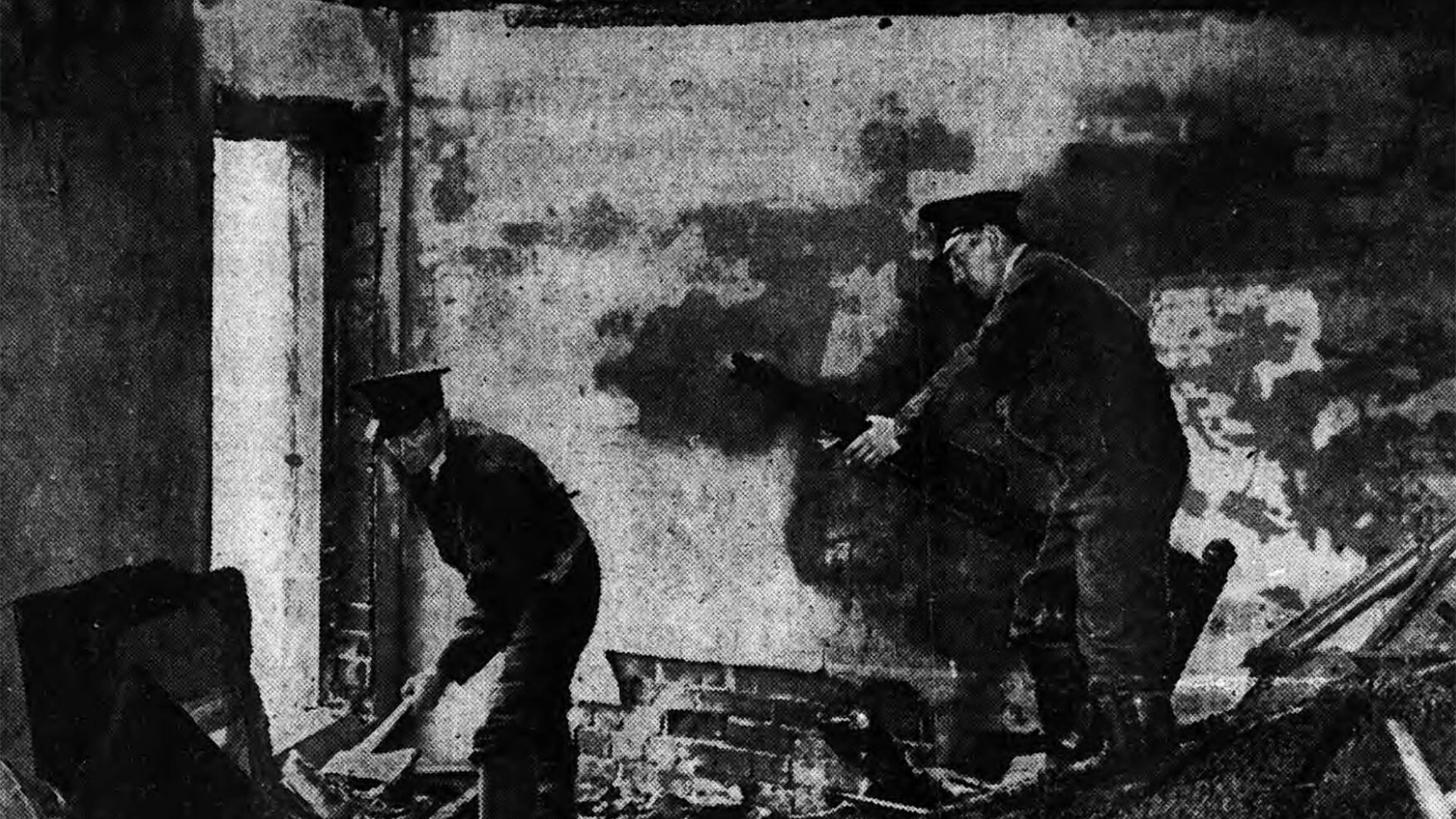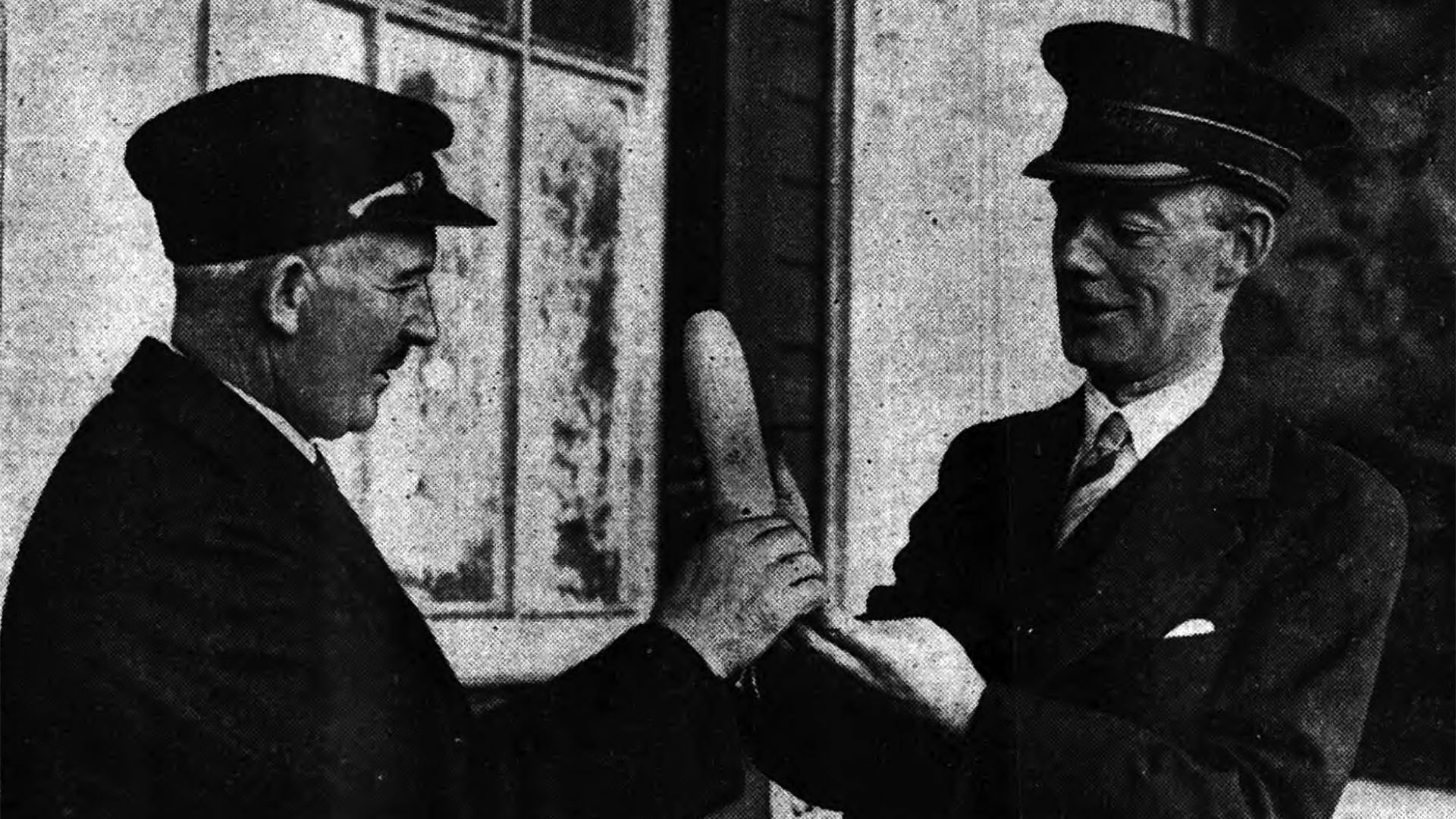On 13th September 1940, a lone Luftwaffe bomber flew over the Co. Down coastal town of Bangor dropping incendiary devices. The main target was shipping and the attack on the coast may have been opportunistic or may have been frustration at the lack of success at sea.
The primary objective was a ship, which avoided 2 Luftaffe high explosive bombs. The pilot then aimed for a collier, strafing the vessel with machine-gun fire. Having failed at both targets, the Luftwaffe plane appeared out of the low cloud above the railway station.
The Ministry of Public Security for Northern Ireland issued the following statement:
A single enemy aircraft made an unsuccessful attack on shipping off the Northern Ireland coast this morning. Subsequently, a small number of incendiary bombs were dropped on a coast town. A few fires were caused but were soon brought under control by the local Fire Brigade and Auxiliary Fire Services. The damage was slight, and there were no casualties.
Many residents of the town observed the bomber over the town, one witness reporting that RAF fighters gave chase. The Luftwaffe plane flew off in a north-westerly direction followed by 3 Allied fighter planes. A total of 22 incendiary devices fell on Bangor, Co. Down with the area around the railway station bearing the brunt of the attack. The first 3 devices fell in the yard to the rear of the station where buses and taxis would wait. Many of the bombs failed to explode but it was a wake-up call for the people of Northern Ireland.
To those who have fondly imagined that for some reason or other this part of the world was not likely to receive the attention of Hitler, this happening will come as a surprise, but long before the Germans occupied bases on the other side of the English Channel, the authorities have endeavoured to stimulate the people to preparedness against occurrences like today’s.
Belfast Telegraph – Friday 13th September 1940.
The bombs that took hold did so in business premises. The most serious damage occurred in a 3-storey furniture store where a bomb crashed through the roof and burned its way to the ground floor. The fire caused severe damage to documents and stock but local fire services had the blaze under control within 45 minutes. An office in the same block escaped damage as they had cleared their attic space. This meant the bomb came through the roof and burned out on the concrete floor.
Other businesses affected included the Electricity Board, an undertaker’s coffin store and the rear of a grocer’s store. A paint shop, a coal yard, and a poultry and meat store also sustained damage. A further 3 bombs burned out in the main street causing no damage, while others failed to explode at the post office and a public house.
A 4th bomb that landed in the main street of Bangor, Co. Down ignited but railway station staff quickly smothered it with buckets of sand. The foot long device bore the markings DL-145-1936-103 KB. The official responsible for it’s extinguishing told his story to the Belfast Newsletter.
I was in the office when I heard an explosion. I thought at first that the report was caused by the backfire of a car. There was another report and I saw a flash of blue flame. We realised then that it was something more than fireworks. There were many people coming to catch a train, but fortunately none of them was [sic] hit. I ran outside just as another bomb fell. I immediately got a bucket of sand, and threw it over the bomb which failed to ignite. I then put it in the bucket.
His quick thinking prevented further damage in the town. During a visit that afternoon, Prime Minister of Northern Ireland Lord Craigavon paid tribute to the firefighters and Civil Defence volunteers.
There was no loss of life in the attack and newspapers reported only slight damage. Authorities hoped this first Luftwaffe attack on Northern Ireland would urge citizens of Ulster to pay more heed to the threat. Until then, people were apathetic about Civil Defence and observation of the blackout amongst other things.

